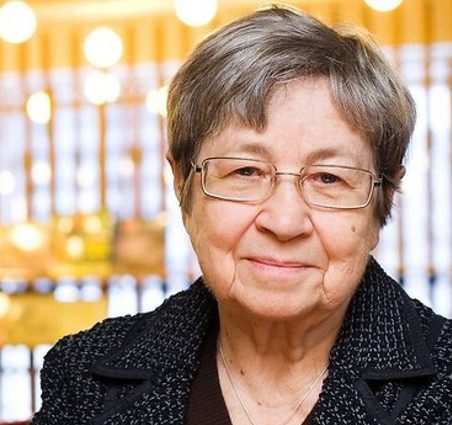Jaan Kaplinski received a lifetime creative achievement award from the Republic of Estonia. Andrei Ivanov was likewise recognized for his creative achievements in 2015.
Jaan Undusk received the main 2016 Cultural Endowment of Estonia’s Award for Literature for his book On Estonian Writers’ Worldviews (Eesti kirjanike maailmavaatest). In the work, which is placed within a broad context, he seeks, with passion and refined style, the nucleus of the personality, spirit, and creative works of Estonia’s key writers.
The 2016 Cultural Endowment of Estonia’s Awards for Literature by genre are as follows:
Mait Vaik received the Award for Prose for his short-story collection Unrepentant (Meeleparanduseta), at the core of which are true-to-life stories about urbanized contemporary intellectuals’ more or less successful fates.
The Award for Poetry went to Vladislav Koržets for his surprising debut collection Songs or Such (Laulud või nii), which is composed of his best poetry over the years. Several of the poems have already achieved fame as lyrics.
Paul-Eerik Rummo’s play Stones Fall Continuously from the Sky (Taevast sajab kõikseaeg kive) won the Award for Dramaturgy. Rummo gleaned inspiration from Jaan Kross’ novel The Rock from the Sky, extracting various motifs and quotes from it in altered form.
Aino Pervik’s literary fairy tale The King of the Valley of Woe (Hädaoru kuningas) won the Award for Children’s and Youth Literature.
The collection Bridge of the Enigma (Mõistatuse sild) by Hasso Krull received the Award for Dissertation.
The Award for Translated Literature from a Foreign Language into Estonian went to Riina Jesmin for two translations from Romanian: Norman Manea’s novel The Return of the Hooligan (Huligaani tagasitulek) and Mateiu I. Caragiale’s novel The Kings of Curtea-Veche (Curtea-Veche kuningad).
The Award for Translated Literature from Estonian into a Foreign Language went to Merike Lepasaar-Beecher for her translation into English of Jaan Kross’ The Ropewalker: Vol. 1 of the Between Three Plagues trilogy.
Triinu Pakk received the Award for Translated Dissertation into Estonian for her translation of Edward Gibbon’s The History of the Decline and Fall of the Roman Empire.
The Cultural Endowment of Estonia’s Free Award was given to Tõnis Tootsen for his intriguing work The First Day (Esimene päev), which is a richly illustrated, handwritten philosophical fantasy novel.
The awards for Russian-language authors went to Aurika Meimre for her work A. Chernyavski and His Novel The Seven Months of St. Bridget. Commentary, and to Ljudmilla Kazarjan for lifetime achievement in literature.
Hasso Krull also won the Award for Articles with his afterword to Ene Mihkelson’s poetry collection All Ladders are Backwards (Kõik redelid on tagurpidi), entitled “The ladder over the ruins. Ene Mihkelson’s allegorical poetics”.
The Betti Alver Award, which is given for the past year’s most outstanding literary debut, went in 2016 to Silvia Urgas for her poetry collection Destination (Siht / Koht), and to Andris Feldmanis for his novel The Last Thousand Years (Viimased tuhat aastat).
The 2016 A. H. Tammsaare Albu Parish Prize for Literature, which is awarded annually to a work that addresses contemporary topics or the life or works of A. H. Tammsaare, was given to Tiina Laanem for her novel Falling Off the Picture (Pildilt kukkujad).
The Eduard Vilde Vinni Parish Prize for Literature, which is awarded annually to the best work that follows the literary tradition of the classic Eduard Vilde, went in 2016 to Mihkel Mutt for his novel The Estonian Circumciser (Eesti ümberlõikuja).
The annual Viru County Award for Literature is given to the best artistic interpretation of Estonian national history in poetry, prose, or dramaturgy, and went in 2016 to Mathura for his work of lyrical prose entitled Onto Ice (Jääminek).
The Tallinn University Literature Award recognizes Estonian authors who are present or former TLU students. In 2016, the award went to Berit Kaschan for her poetry collection I Laugh Sleeping (Ma naeran magades), and to Daniele Monticelli for his translation of Lennart Meri’s Silverwhite (Hõbevalge) into Italian. Also recognized was Urmas Vadi for his short story The Award (Auhind. Vikerkaar, 2016. No. 4/5).
The First Step Award aims to promote Estonian literary activity, and to encourage young writers. It is given to the author of the best literary text published in the print media. In 2016, the award went to Berit Petolai for her poems “Wolves and old men”, “Yellowing day”, and “To a girl”, which were published in Looming (2016, No. 12).
Piret Viires (b 1963) is a professor of Estonian literature at Tallinn University. Her research focuses on contemporary Estonian literature, postmodernism, post-postmodernism, and the interaction between literature and technology. She directs the TLU Estonian Studies master’s program, is on the board of the Estonian Literature Center, and is Vice-Chairwoman of the Estonian Writers’ Union. Viires has written academic articles on literature, books, and also original prose.

